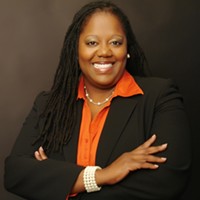"It Gets Better" was the message syndicated columnist Dan Savage broadcast on YouTube in September 2010. Meant primarily to soothe the wounds of vulnerable lesbian, gay, bisexual and transgender (LGBT) youth, it is no less a powerful message for Charlotte.
LGBT Charlotteans should feel encouraged and empowered. So many of us are working hard to make life better here each day we interact with our colleagues at work, our peers at school and our neighbors at home. The historic norm for the Queen City, however, has not been so bright. Many of our elected officials and other civic leaders — some past, some present — have long created and maintained a local political culture that, more often than not, has made conscious decisions to emphatically exclude or ignore LGBT people.
Mecklenburg County's Angels in America arts-funding controversy of the mid-'90s still haunts us today — occasional write-ups about that sad part of our civic history still make it into national newspapers and magazines. Luckily, with the exception of Republican County Commissioner Bill James, LGBT Charlotteans today rarely bear the brunt of locally elected officials' fear-mongering bigotry and prejudice. On the whole, Mecklenburg County has made substantial progress, passing employment protections inclusive of "sexual orientation" and approving domestic partner benefits.
Such progress has stalled on the City Council. While most LGBT people here live, work and learn in relative comfort and social acceptance, they must do so knowing that their City Council has never approved any measure to recognize their legal or civic equality. In the two decades since Council first heard and then soundly defeated an LGBT-inclusive proposal, more than a dozen municipalities across the state have taken public stands against discrimination and passed employment protections based on sexual orientation. Some municipalities have also included protections for transgender people.
Such measures are hardly controversial; small towns like Boone, tucked away in the northwestern reaches of the state's Appalachians, have already passed LGBT-inclusive ordinances. So, too, have the cities with which Charlotte competed for the honor of hosting the 2012 Democratic National Convention.
Fortunately, our future isn't as bleak as our past. Charlotte has come a long way since the days of former Mayor Pat McCrory's cold-shouldered stance against the LGBT community. Mayor Anthony Foxx was the first mayor in our history to sit down with LGBT citizens in a public town hall. Other council members and civic leaders have also begun to listen and lead with their hearts. Only a few short years ago, it would have been unimaginable to see our mayor and council members engaging in public conversation with the LGBT community. Yet, here we stand, with leadership that values our contributions and who aren't afraid to be seen at our LGBT Community Center or annual Pride Charlotte Festival.
Despite the overwhelming amount of progress, there remains much yet to be done. Small, relatively uncontroversial changes to city policies and ordinances should be discussed further by our Council. Our city's employees deserve to know that their persons and work will be judged by their character and its quality, not simply by who they are. Domestic-partner benefits are important, too. Healthy homes and families will only strengthen our city.
Real social, cultural and political change is possible here, but only if those we have chosen to represent us are willing to take on the kind of visionary leadership that is necessary to uphold the cherished values and ideals essential to the very fabric of our republic. Charlotteans want our leaders to lead and use the means at their disposal — their public votes and voices — to move this city into the progressive New South it seeks for itself.
Our city has a lot to show the world when the Democratic National Convention comes a'knocking in September. I hope our leaders choose to show what is best about the city by sending a strong, public message of inclusion, equality and acceptance of their LGBT constituents.
Charlotte's people are ready for change. Are our leaders? I hope so, because together, we can take a stand for the liberty and justice to which we each grew up pledging our hearts, minds and souls.
Matt Comer, a progressive and LGBT activist, is a former editor of QNotes, Charlotte's LGBT community newspaper. You can follow his writings and work at mattcomer.net.

News & Views » Commentary
Queen City? She's no reigning monarch when it comes to LGBT equality
by Matt Comer